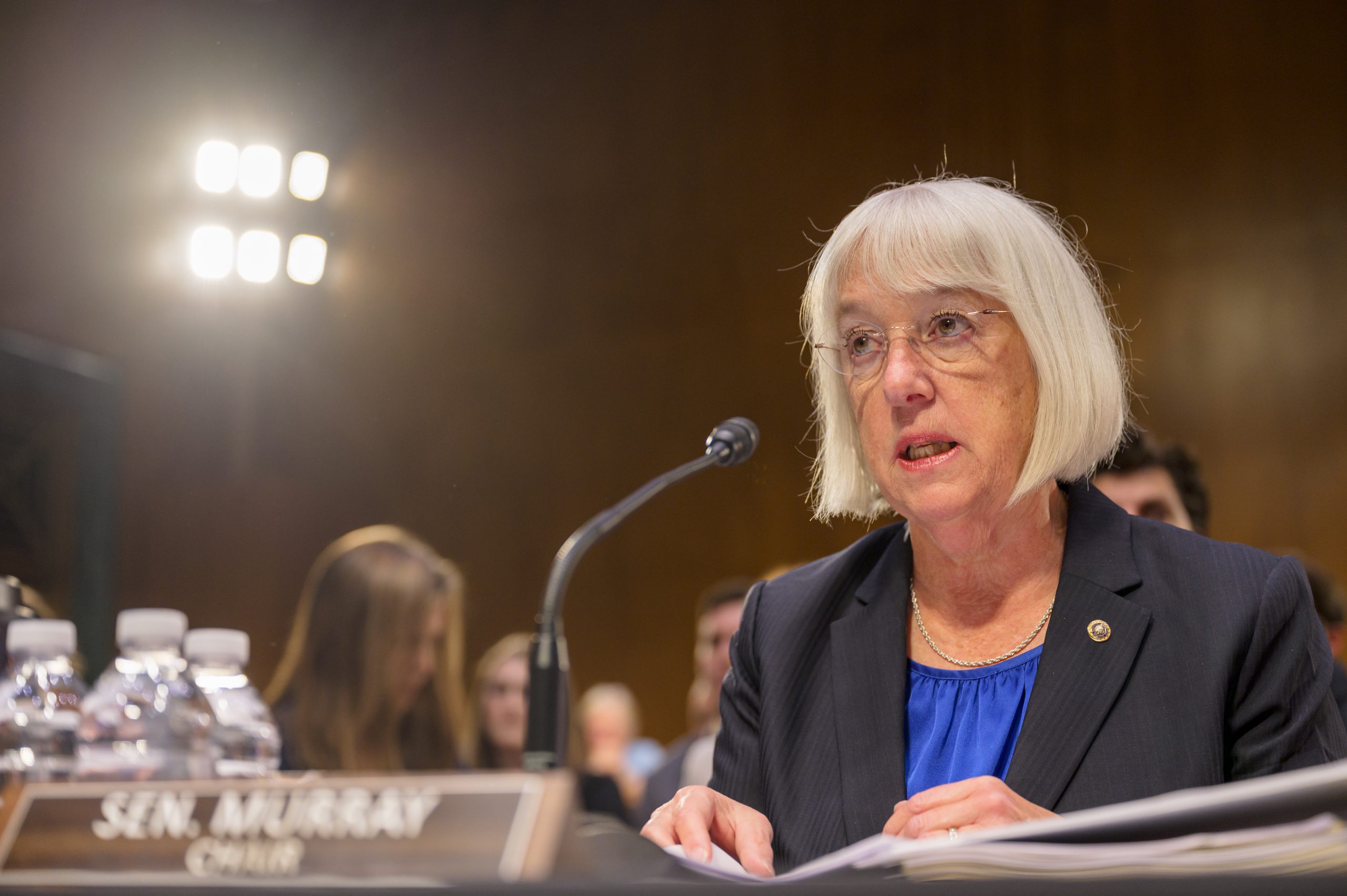Murray wrote and passed the funding bill that provided the resources for this award and directly authored the provision to establish the BioS-ENDURES Consortium
Seattle, WA – Today, U.S. Senator Patty Murray (D-WA), Chair of the Senate Appropriations Committee, announced a $2.5 million NASA award to establish a scientific consortium based at the University of Washington in partnership with Washington State University and the Pacific Northwest National Laboratory. The award was funded through a provision in the Fiscal Year 2024 government spending bill authored by Senator Murray to establish a consortium within the Biological and Physical Sciences—and resulted in the establishment of the Biology in Space: Establishing Networks for DUrable & REsilient Systems (BioS-ENDURES) Consortium. The BioS-ENDURESConsortium will focus on innovation, acceleration, and implementation of space biology specific knowledge and technology centered on human-plant-microbiome relationships to enable a durable human presence in low Earth orbit and beyond.
“As Chair of the Senate Appropriations Committee, I am writing our funding bills to invest in Washington state’s growing innovation economy,” said Senator Murray. “By establishing this scientific consortium here in Washington state, we are laying the groundwork to bring even more private and federal investment to our state’s growing aerospace industry. If we want to maintain our competitive edge, we have to stay at the forefront of scientific discovery—and this federal research partnership will help us do that. Investing in scientific discovery is an investment that pays off—this is a next chapter in a story of inquiry, invention, innovation, exploration, and discovery of new frontiers.”
“The University of Washington is excited to have this opportunity to contribute to the development of new capabilities that will enable a sustainable human presence in space,” said Mari Ostendorf, Vice Provost of Research, University of Washington. “This consortium enables new partnerships and brings together investigators who have a long history with NASA and space applications with researchers who have deep expertise in human/animal, plant, and microbial biology. This research will push the boundaries of our scientific understanding to reveal new biological mechanisms that will address both sustainability and risk mitigation needs in space. We look forward working with WSU, PNNL, and NASA, as well as with other industry and science partners to accelerate space technology.”
“This represents an exciting opportunity for the state of Washington to continue building our capacity for critical research to understand and improve human-plant-microbial systems for space habitation,” said Dr. Michael Wolcott, Interim Vice President of Research at Washington State University. “This work will have a direct contribution to humankind’s ability to travel—and live—in space. WSU is thrilled to be part of this collaborative effort with our colleagues at the University of Washington and the Pacific Northwest National Laboratory and looks forward to continuing this work with NASA.”
“Pacific Northwest National Laboratory is thrilled to join forces with the University of Washington and Washington State University in the BioS-ENDURES consortium,” said Malin Young, Associate Laboratory Director, Earth and Biological Sciences. “Together, we’re harnessing our cutting-edge life science capabilities to help NASA achieve its mission of establishing a sustainable and lasting human presence in low Earth orbit, on the Moon, on Mars, and beyond.”
A more thorough understanding is needed of mechanisms underlying responses to space-relevant stressors (ionizing radiation, microgravity, circadian disruption, abiotics, and biotics) to both humans and plant food sources and what role microbiomes may play in shaping those responses. Human/animal, plant, and microbial biologists will work together to ensure an integrated view of the space flight biosphere by enhancing data acquisition, modeling, and testing.
Human/animal, plant, and microbial biologists will work together to ensure an integrated view of the space flight biosphere by enhancing data acquisition, modeling, and testing. BioS-ENDURES has three thrust areas focusing on the effects of spaceflight stressors:
- Develop monitoring capabilities to measure underlying molecular status (biomarkers) of humans, animal models, plants and their associated microbial communities.
- Build models to predict human-plant-microbe robustness and interactions among organisms in space.
- Validate and apply understanding of human and plant health, including promoting beneficial human-plant-microbe interactions, to enhance health in space.
The BioS-ENDURES Consortium is built upon a collaboration between the University of Washington, Washington State University, the Pacific Northwest National Laboratory, and science and industry advisory boards. Consortium members will partner closely with NASA to align work with current and projected needs. Funding from NASA will support proof-of-principle demonstration projects each year to advance the science of the three thrusts, annual symposia tracks (some full consortium, some with tighter focus), and costs of physical testing.
###


